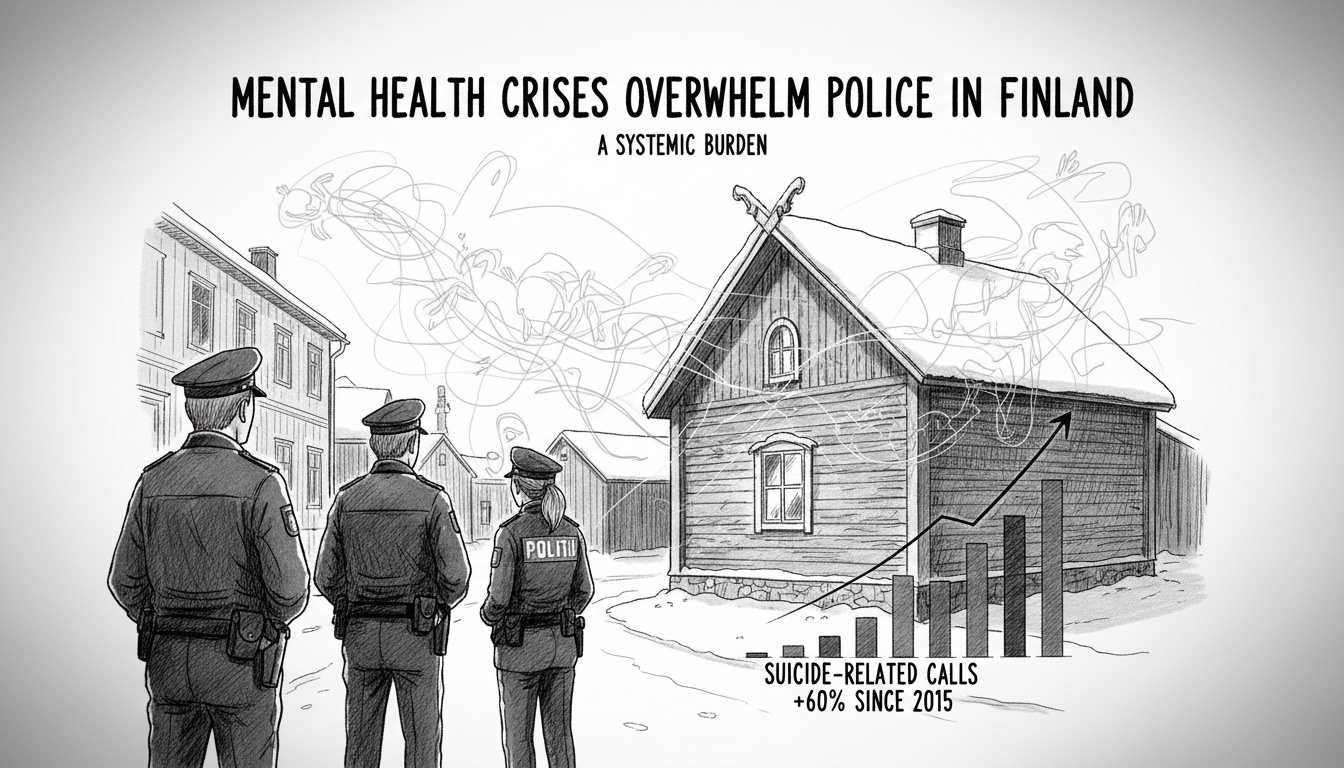Finnish police report a sharp increase in mental health-related emergencies. People's declining wellbeing now dominates police response duties across the country.
Police Commissioner Ilkka Koskimäki stated that mental health tasks have grown substantially in recent years. He believes one key reason is inadequate treatment capacity within healthcare systems.
Koskimäki emphasized that police aren't mental health experts despite responding to life-threatening situations. He stressed the need for preventive work and better access to mental health services across society.
This approach could prevent situations from becoming critical before police intervention becomes necessary.
Financial struggles from unemployment and various crises significantly impact citizens' mental wellbeing according to police analysis.
The decline shows clearly in rising suicide attempts. Police recorded approximately 11,600 suicide-related emergency calls in 2015. Last year saw over 18,400 cases - meaning 350 weekly and 50 daily incidents.
Chief Inspector Juha Syrjä highlighted weakening social networks, population aging, and increasing loneliness as contributing factors.
Young people particularly concern authorities. Syrjä noted that social media can reinforce harmful thoughts among youth. In the Helsinki metropolitan area, tracking at-risk youth proves difficult as they move across different police districts.
Police specifically worry about strong connections between mental health issues and substance abuse. Over half of suicide-related cases involve people under drug influence.
No comprehensive statistics exist for mental health tasks because these issues appear across various police duties from thefts to domestic disturbances and traffic incidents.
Police departments consistently report that mental health emergencies consume increasingly more field time.
Some individuals endanger both themselves and others including police officers. Inspector Vesa Pihajoki explained these situations occur in homes and public spaces alike.
We encounter people in forests, waterways, and high places like roofs and towers, Pihajoki described.
When someone cannot access healthcare support, they remain in police custody. Officers must quickly decide whether to release people to family or place them in protective custody.
A maximum 24-hour police detention doesn't change the underlying situation, Pihajoki noted. Healthcare interventions provide the long-term solutions.
Worsening mental health also appears in serious violent crimes. Some individuals police encounter receive outpatient or partial inpatient care. Many only access long-term treatment after serious violent incidents and criminal proceedings.
Psychiatric hospital beds decreased over 40% between 2015 and 2021 according to the Finnish Institute for Health and Welfare. Recent surveys show psychiatric emergency departments face substantial pressure.
With wellbeing districts widely known to face financial difficulties, does the Police Board essentially send messages to political decision-makers?
Our assessment shows healthcare capacity remains completely inadequate for various reasons, Commissioner Koskimäki responded. Something must happen to improve people's wellbeing.
The mental health crisis represents a systemic failure where police become the default responders for healthcare emergencies. This situation serves neither officers nor those experiencing mental health challenges effectively.
